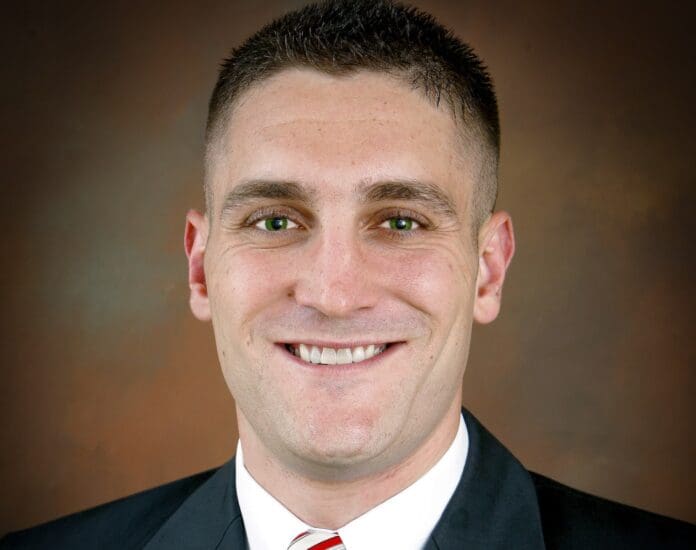Meet Barbara Wagner, great-grandmother, age 64. In 2008, she was diagnosed with lung cancer and was fighting for her life. Her physician recommended chemotherapy and prescribed Tarceva to extend her life. The drug provided a 30% increased survival rate for patients with advanced lung cancer, and increased the likelihood that she would live another year by 45%. This was the way forward; it was going to be difficult, but Barbara was a fighter. However, Barbara lived in Oregon. She received a devastating letter in the mail from her health insurance provider. The chemotherapy was going to be too costly for the health insurance; unfortunately, they weren’t going to cover the life-saving treatment. But, her plan “would cover physician-assisted suicide.”
Meet Randy Stroup, fellow Oregonian, suffering from prostate cancer. He was prescribed Mitoxantrone, a chemotherapy treatment, that would extend his life a short while and make his final months of life more bearable. He was ready to go through with the treatment — until he received a letter in the mail from his health insurance provider. His plan wouldn’t cover the chemotherapy; it was too costly, and he was near the end of his life anyways. They wouldn’t cover the chemo — but they were willing to pay the cost of his assisted-suicide.
Meet Stephanie Packer, mother of four and a cancer patient. She lived in California where physician-assisted suicide had just become legal in 2016. After being prescribed chemotherapy, she was given the green light by her insurance to go through with treatment. That is, until she received a phone call. Over the phone, a representative of her insurance told her she was no longer covered for chemotherapy — but there were much less expensive, low-cost suicide pills that the insurance company would be happy to cover. California had just legalized medically assisted suicide with the “End of Life Options Act” and, at least in Stephanie’s case, the health insurance providers were happy to provide for one option in particular.
Meet Dr. Brian Callister, an associate professor of internal medicine at the University of Nevada. He had two patients suffering with serious diseases. His clinic was unable to administer the life-saving procedures these patients needed and so, he recommended them to different clinics located in California and Oregon. The patients contacted their health insurance providers over the phone, and both came back with bad news — their health insurance wouldn’t cover the transfer requests. Dr. Callister picked up the phone himself and called their insurance medical directors. They told him they were sorry they couldn’t cover either the transfers or the procedures his patients needed — procedures that would certainly prolong their lives. But, without any prior suggestion from Dr. Callister, they asked if he considered recommending assisted suicide for his two patients.
When medically assisted suicide is legalized, it immediately becomes the cheapest treatment. Advocates of medically assisted suicide argue it allows people to “Die with Dignity.” But, what could be more undignified than having one’s life weighed in the spreadsheets of health insurance providers? These are not isolated cases. It is rampantly proceeding throughout the Suicide States. Barbara, Randy and Stephanie had families and friends who loved them, who wanted them to receive whatever treatment they thought was necessary. They were suffering, going through extreme distress and hardship; but to be so rejected, to have one’s life declared not worth it, that is, indeed, horrific. This is the sinister calculus introduced with legalized medically assisted suicide. And, as in the case of Dr. Brian Callister, good physicians are unable to provide the life-saving treatment they know their patients need. Dr. Callister is a doctor who lives by his Hippocratic oath to “never do harm” and has dedicated his life to aiding the health of his patients. To be told he should stop trying and, even worse, that he should recommend his patients kill themselves, is a slap in the face to his whole life’s work.
Imagine the feeling of receiving that phone call or that letter — the distress of being denied life-saving treatment, and even more terrifying, the recommendation to kill yourself. These are not animals: they are people who ought to receive the real treatment they need, without the recommendation to kill themselves. Here in West Virginia, we have the opportunity to ensure those phone calls and letters to our loved ones never happen. We have the ability to ensure our grandparents, our parents and our neighbors are not distressed by the rejection of real healthcare treatment and a recommendation for medically assisted suicide. In short, we should affirm real dignity. We should vote For Amendment One and enshrine in our state constitution that medically-assisted suicide will not be tolerated in our beautiful Mountain State.
Pat McGeehan is a six-term member of the West Virginia House of Delegates. A graduate of the U.S. Air Force Academy, he serves as the dean of a private school in the Northern Panhandle. He resides with his daughter Kennedy in Chester. He utilized the following sources in his writing: https://www.ncd.gov/assets/uploads/reports/2019/ncd_assisted_suicide_report_508.pdf; https://abcnews.go.com/Health/story?id=5517492; https://deathwithdignity.org/wp-content/uploads/2021/12/04-refute-false-info-web.pdf; https://www.foxnews.com/story/oregon-offers-terminal-patients-doctor-assisted-suicide-instead-of-medical-care; https://youtu.be/KvMKEkOWVEQ?si=WCCfRLY2J-C8P7nW; https://www.washingtontimes.com/news/2016/oct/20/assisted-suicide-law-prompts-insurance-company-den/; https://www.youtube.com/watch?v=CWrpr_5e4RY; https://www.australiancarealliance.org.au/california



My father lived in Oregon. I was privileged to care for him after he was diagnosed with a terminal cancer.
Chemo and other cancer treatments were not an option, due to his advanced age. (88) His doctor advised him him to just go home and be thankful he’d had a good long life.
His cancer doctor recommended blood transfusions to extend his life a few months and ease the symptoms of his cancer.
This treatment was accepted by his insurance company. It gave his grandchildren the opportunity to spend time with him before he passed.
Assisted suicide was never suggested.
If an insurance company refuses treatment, a patient has the right to appeal that decision. Life is precious to the last breath.
1000%, Debbie. Ty!